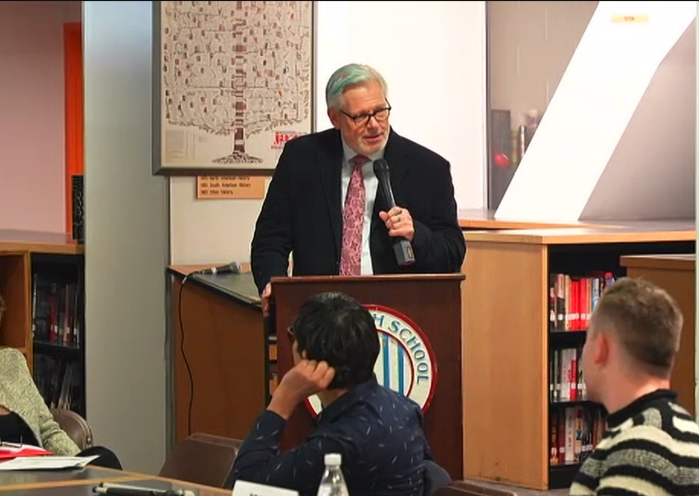High Court is world’s first to provide immigration protection for coming out
In an important breakthrough, the highest court of a nation has for the first time ruled that coming out of the closet is a protected activity under international refugee law.
Australia’s High Court voted 4-3 to reverse the country’s lower courts and order a hearing for a gay male couple from Bangladesh whose petition to stay in Australia as refugees had been denied by both the Australian Refugee Review Tribunal (RRT) and the lower federal courts of that country.
The December 9 decision was the first by any nation’s highest court to find that gay people can be considered members of “a particular social group” under the 1951 International Convention Relating to the Status of Refugees. The court found that if conditions in a country require gays to keep their sexual orientation secret in order to avoid official persecution, then gay people who desire to live openly may seek refugee status in Australia.
The United States also applies the 1951 convention standards to determine refugee status, and, during the Clinton administration, adopted a similar conclusion that gay people are members of a particular social group, but the U.S. Supreme Court has never addressed the issue of gay refugees, nor has the highest court of any other country party to the international standards.
The majority ruling is embodied in two opinions, with subtly different reasoning, one authored by Justices Michael Kirby, the only out gay member of the court, and Michael McHugh, the other signed by Justices William Gummow and Kenneth Hayne.
Two opinions state the opposing views, upholding the decision of the RRT and the lower courts, one attributed to Chief Justice Anthony Gleeson and the other to Justices Ian Callinan and Dyson Heydon.
The case was complicated because the two men, whose identities are protected in the written ruling, told stories about their persecution in Bangladesh that the RRT found to be internally inconsistent and lacking credibility. One of the men spoke of having been sentenced to 300 lashes by a religious tribunal for being gay, for example, but upon examination by the RRT appeared to have no scarring on his body. (He explained that the entire sentence had not been carried out.) The RRT came to believe that the two men had lived together as a couple for several years in a “discreet” manner and avoided serious persecution by either the government, their families, employers, or others. As Callinan and Heydon indicated in their dissenting opinion, there is a difference in refugee law between actual persecution and social disapproval or ostracism that they may have suffered, and only actual persecution of some severity would count for purposes of refugee law.
The RRT concluded that if the men returned to Bangladesh and resumed the same lifestyle they had been leading, they would likely avoid any serious persecution. This conclusion was based on evidence that although Bangladesh maintains criminal sodomy laws, they are rarely enforced, and that people in that country prefer to avoid dealing with the issue of homosexuality, so gay people can avoid trouble by living discreetly. The RRT argued that the men had failed to show that they had a “well-founded fear of being persecuted for reasons of membership of a particular social group,” one applicable ground specified in the Convention.
In disputing this finding, a majority of the court rejected the RRT’s assumption that the protection of refugee law would only extend to persons who could not avoid persecution by hiding the fact of their membership in a particular social group.
“Persecution does not cease to be persecution for the purpose of the Convention because those persecuted can eliminate the harm by taking avoiding action within the country of nationality,” wrote Kirby and McHugh. “The Convention would give no protection from persecution for reasons of religion or political opinion if it was a condition of protection that the person affected must take steps—reasonable or otherwise—to avoid offending the wishes of the persecutors. Nor would it give protection to membership of many a ‘particular social group’ if it were a condition of protection that its members hide their membership or modify some attribute or characteristic of the group to avoid persecution.”
In one of the opinions, the comparison was drawn with a Jew in the Nazi-occupied Netherlands during World War II who could avoid persecution by hiding in the manner of Anne Frank and her family in a secluded attic. As the majority observed, the issue not addressed by the RRT was whether such “discretion” is truly “voluntary.”
While it is possible that the two men from Bangladesh had not been entirely truthful––or perhaps had been confused or misunderstood––in relating the history of their treatment in their home country, the issue before the tribunal was more properly whether they were seeking refuge from a society in which they had a reasonable apprehension that they could be subjected to persecution because they are gay.
The dissenters’ arguments carried an implicit warning that the majority’s view could open up Australia to refugee claims from gay people anywhere where there remain sodomy laws in effect or significant social hostility toward gay people. This prospect did not seem to bother the majority, who appeared inclined to respond that this is precisely why there is international refugee law.
































